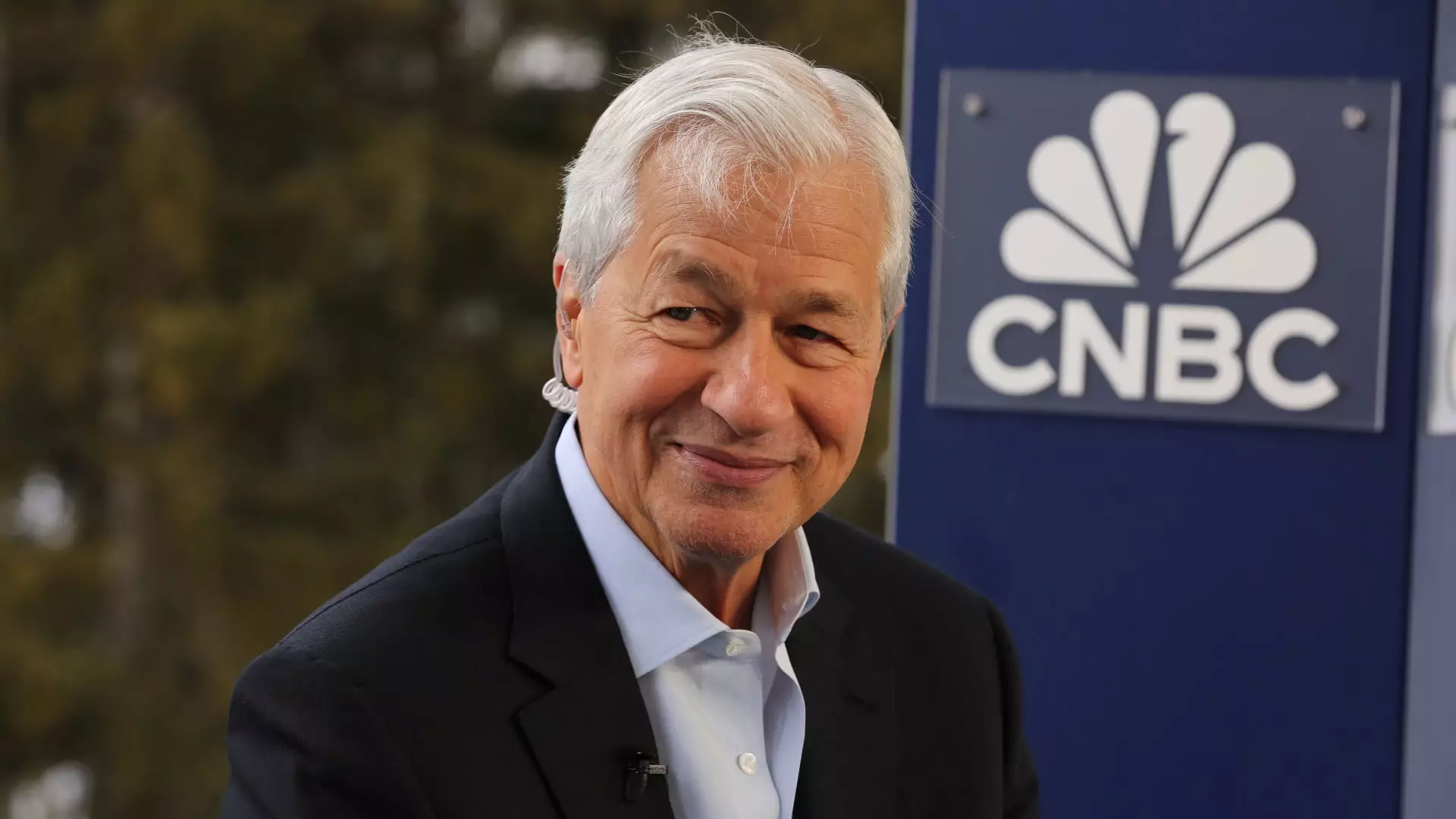The economic landscape is often characterized by rapid changes, especially in the realm of trade. Recent discussions surrounding tariffs introduced by the U.S. government, particularly under former President Donald Trump, have sparked a multi-faceted debate. While many view these tariffs as potential catalysts for a trade conflict, some financial leaders argue that they can serve as a strategic tool to protect national interests. Embracing a critical viewpoint requires us to examine both the potential benefits and broader implications of tariff imposition.
Tariffs, or taxes imposed on imported goods, have historically been used by governments to encourage domestic production by making foreign goods more expensive. Herein lies a fundamental point presented by Jamie Dimon, the CEO of JPMorgan Chase, during an interview at the World Economic Forum. Dimon suggested that while tariffs might induce a degree of inflation, if deployed with the right intentions, they could lead to improved national security and better trade negotiations. Such a perspective reassures those holding positions of economic power that reasonable inflation can be acceptable in exchange for enhanced security measures.
This perspective reflects a broader sentiment within the financial community that tariffs, when not overused, can strategically influence trade dynamics. However, this argument raises critical questions: Can we genuinely separate economic strategy from the potential repercussions of a trade war? The looming threat of tariffs, particularly against partners like China and the European Union, could lead to retaliatory measures that might ultimately harm domestic industries and consumers.
Dimon’s assertion places considerable weight on the notion that tariffs are primarily economic tools. Yet, it is crucial to consider the potential consequences of classifying tariffs solely as a mechanism of negotiation. The financial sector’s optimism stands in stark contrast to warnings from economists who fear that initiating tariffs could exacerbate inflation rather than control it. Many consumers may find themselves facing higher prices, leading to a decline in purchasing power and overall economic stability.
Moreover, Dimon’s comments came on the heels of an anticipated reevaluation of trade agreements, such as the U.S.-Mexico-Canada Agreement (USMCA). This negotiation process serves as both a challenge and an opportunity—a balancing act where immediate gains could inadvertently affect long-term trade relations. The potential for a trade war, spurred by aggressive tariff implementation, threatens to foster an environment of unpredictability that could hinder rather than help economic growth.
One noteworthy consequence of tariffs is their impact on currency valuation. Dimon highlighted that while tariffs can alter the dollar’s value, the predominant objective should be sustained economic growth. As tariffs create ripples through the economic system, they can significantly shift the dynamics of currency exchange and global markets. The U.S. dollar’s recent decline amidst tariff discussions raises significant alarms about investor confidence and market stability.
Big players in the investment arena like Goldman Sachs’ CEO David Solomon echoed Dimon’s sentiments yet added a layer of caution related to the execution of tariff policies. Solomon emphasized that a thoughtful and calculated approach is necessary to ensure that such measures lead to constructive outcomes beneficial for U.S. economic growth. Both leaders suggest that harnessing trade negotiations effectively could lead to rebounds in specific market sectors, pending proper implementation.
While a degree of optimism exists among corporate leaders regarding tariffs as economic tools, it is imperative to acknowledge the potential risks involved. A careful balancing act is required to navigate the complexities of inflationary pressures and trade negotiations, ensuring that U.S. interests remain safeguarded without inciting a broader economic fallout. As the economic discourse continues, it remains essential for stakeholders, including policymakers, business leaders, and consumers, to engage in a continuous dialogue that prioritizes sustainable growth while managing the inherent risks associated with international trade. Ultimately, whether tariffs indeed serve as a protective measure or ignite broader economic challenges will depend on the strategic choices made by those at the negotiating table.

